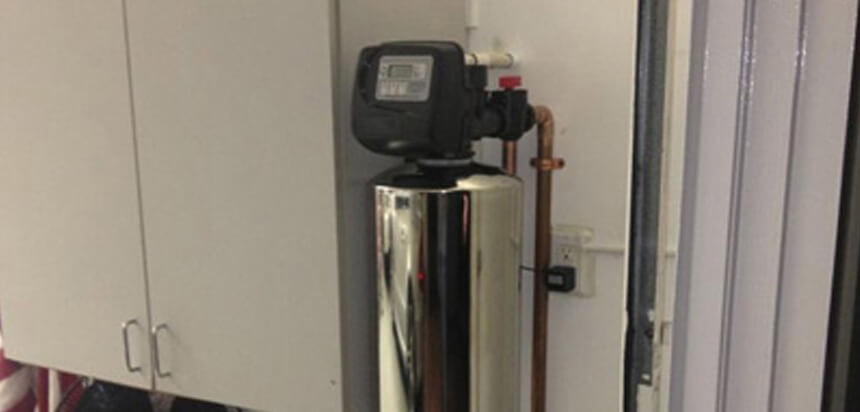
Have you had to repair your water heater repeatedly in the past year alone? Is your current system no longer effective as it once was? It might be time for a replacement, especially if you have been using the same system for the past 15 years. Although there will come a point where you will have to install a new water heater, you should also learn more about when replacing it is necessary. You should always consult a professional plumber ahead of time to ensure that you are making the right decision. In many cases, a repair service will suffice and you can avoid having to pay to replace your current system.
The Age of Your System
Most homeowners don’t know the average lifespan of a standard water softener. Most systems will last you about 15-20 years with regular maintenance. Anytime a water heater exceeds 20 years in age, then you should strongly consider replacing it. By now the technology is outdated and the system isn’t nearly as efficient as a newer water softener. When it comes to age, it’s best to stay ahead of things and replace your system altogether.
Loss of Hot Water Volume
Is your water heater not producing nearly as much hot water as it did before? One of the key indicators of when to replace your system is an insufficient supply of hot water. This usually means that your water heater is in decline and pretty soon all your showers will be lukewarm and tepid, which is something that none of us wants. We often end up taking hot water for granted, which can affect us greatly when we don’t have access to it.
Rising Heating Bills
In most households, hot water accounts for a majority of your monthly energy bill, so if you notice a significant increase in what you owe, then you will likely need to replace your water heater. Your bill is a lot higher because your water heater isn’t as efficient as it used to be in producing hot water. This is another indication that your system is declining and aged.
Constant Repairs
When you are constantly repairing your water heater, you are throwing away your money. You should keep count of the number of repairs that your system undergoes in a year – it should never exceed more than two repair services. Instead of spending money on a system that is going to continue to give out, you should arrange for a replacement.
The Appearance of Rust
Most metal water heaters are liable to be affected by rust and other forms of corrosion. What happens is the rust takes hold of the metal surface and then it spreads and begins to eat up your entire system. Rust can develop anywhere, even along the metal water pipes that transfer the hot water to other areas of your home. It can be difficult to determine exactly where the rust is coming from, which is why you should have a professional come and check things out. If you have rusty water coming from your bathroom faucet, then odds are it’s originating in your water heater. You can also drain the water coming directly out of your water heater into a bucket to determine if that’s where the rusty water is originating.
Noises Coming Your Water Heater
An aged water heater will begin to make noises when it’s producing and storing any hot water for your home. The rumblings will then become louder and louder over time, and if you live in a household that consumes a lot of water, then you could be in trouble. The higher demand for hot water will only exacerbate the issue. Noisy water heaters are usually an indication of buildup along the bottom of the tank. You should flush out your system once a year to eliminate any sediment from your tank, which will go a long way in preventing damage and promoting greater efficiency.
Leaks in Your Water Heater
Once your water heater is older in age, there’s a greater likelihood that a leak will occur. If don’t tend to any leaks immediately, then this could result in water damage to your home, which can end up costing you a lot of money in repairs. Several things can cause your water heater to leak, but the primary cause is when the metal tank expands and contracts due to the inner heating mechanism. Usually, your tank won’t leak when it’s idle, but when it undergoes a heating cycle, it will expand and begin to leak again.
At any rate, you should always check if any water appears under your tank. This can indicate that certain components of your water heater are defective, such as the fittings and connections to the tank itself. You can make adjustments and tightenings to try and stop the leaking, but if it’s coming directly from your tank, then you will need to replace your system altogether.
Broken Heating Element
If you are not receiving any hot water, then the heating element in your water heater is likely broken. With an issue such as this, you can hire a professional to perform repairs. They should have everything back up and running in a matter of hours. However, if your water heater is past the 10-year mark, then you should consider replacing the system altogether rather than repairing the heating element.
Having reliable access to warm water is something that many of us cannot do without, but you can avoid a lot of inconvenience by replacing your water heater today. If you are still unsure about what to do, then you can always give us a call! One of our team members will tell you everything you need to know about repairing or replacing your weather heater.
